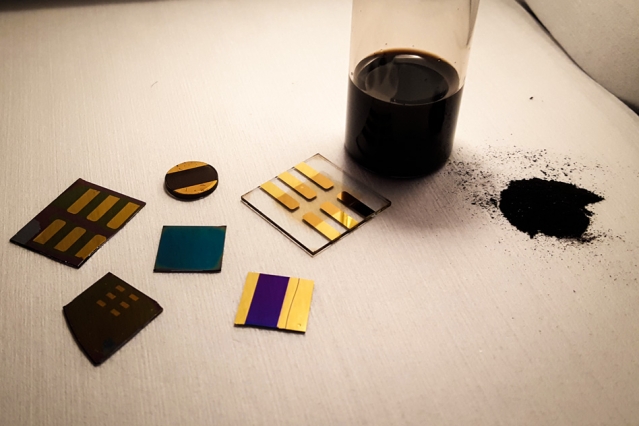MIT Researchers Make Electronics Out Of Coal
Coal has been a widely used substance for centuries, but until now its bulk electronic and optical properties have not been studied for advanced electronic devices.
A team of researchers from MIT has set out to discover how to transform coal into solar panels, batteries, and electronic devices.
Professor of Materials Science and Engineering, Jeffrey Grossman, along with his team has developed a simple electrical heating device that could be used for defrosting car windows, airplane wings, or even as part of a bio-medical implant.
“When you look at coal as a material, and not just as something to burn, the chemistry is extremely rich,” said Grossman. He set out to determine whether coal’s chemistry and make-up could be used to make useful and functional devices.

What he and the team discovered was that naturally occurring coal varieties “have a range of electrical conductivities that span seven orders of magnitude (ten million times)”, which means that certain varieties of coal could provide the electrical properties needed for components.
Grossman and the team needed to figure out how to process the coal, so doctoral student Brent Keller came up with a way to crush it into to a powder, put it in solution, and then deposit it in thin uniform films on a substrate, which is necessary in the creation of many electronic devices like transistors and photovoltaics.
In the course of their research, they also found that adjusting the coal’s processing temperature could tune the material’s optical and electrical properties to desired values.
Their small heating device was a complete demonstration of the entire coal transformation into an electronic gadget.
According to Grossman, one advantage of using coal is its low cost. When it comes to working with chip-grade silicon or graphene, the purification of the materials can be expensive. Using powdered coal could provide a significant advantage for many kinds of applications, since it possesses characteristics like tunability, high conductivity, robustness, and thermal stability.
Story via MIT.

Comments are closed, but trackbacks and pingbacks are open.